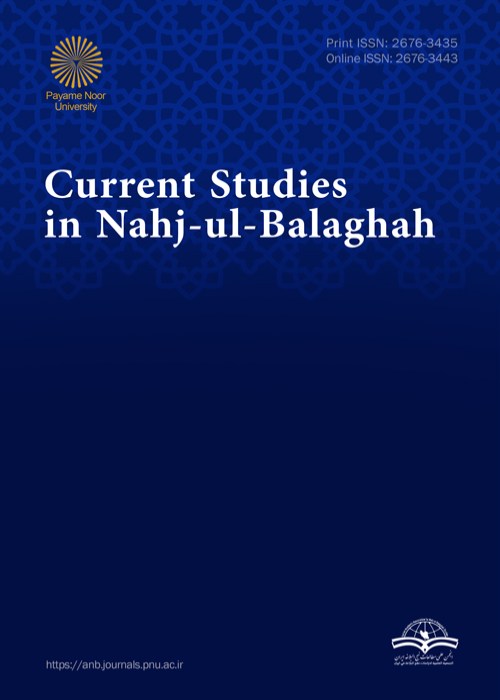Indicators of Ethical Finalism, the Moral School of Imam Ali (AS) in Nahj al-Balaghah's
Nahj-ul-Balagha and its invaluable teachings have a moral position. All the speeches of Imam Ali in different domains are based on ethics and reasoning. Attention to the end and the results of ethics is expressed in a number of ways in Nahj-ul-Balagha. Also, teleology is one of the normative ethical theories that search for the criterion of value and moral obligation in the results of an ethical practice. In the moral school of the Imam, among the indicators of teleology are: and indicators of finalism (teleology) consist of relationship between moral codes, the fruits that are due to the necessity of doing things and the necessity of those acts and exhortations, including auditing and the existence of rewards for action. On the one hand, with the existence of ethical finalism propositions in Nahj-ul-Balagha, it has never been used to gain more profit from wrong ways. In this article, employing a descriptive method, the factors mentioned in the speeches of the Imam have been studied from the perspective of Nahj-ul-Balagha.
-
Explaining Educational Mechanism of Moral Pattern in Nahj al-balagha based on Zagzebski’s Theory
*, Robabeh Zenvand Lorestani, Mehdi Jodi
Journal of Educational Doctrines in Quran and Hadith, -
Understanding the Interpretative Approaches of Imam Ali In Nahj al-Balagha with emphasis on the description of Ibn Abi al-Hadid
Sayed Mohammadmehdi Jafari, Majid Maaref, *
Journal of Quranic interpretation and language,



